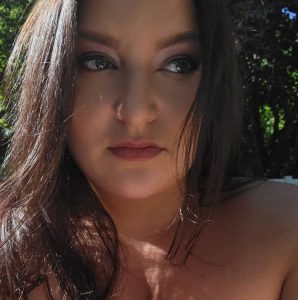 A guest post by Jules Edwards. Jules co-founded Minnesota Autistic Alliance, a nonprofit organization that connects over 2,000 Minnesotans to advance the principles of disability justice and a more inclusive Minnesota.
A guest post by Jules Edwards. Jules co-founded Minnesota Autistic Alliance, a nonprofit organization that connects over 2,000 Minnesotans to advance the principles of disability justice and a more inclusive Minnesota.
If you have never felt bubbles of happiness from the depth of your belly, rippling through your entire body until it releases through flapping your hands or jumping in delight, you may not know that being Autistic can be joyful.
You may not know the satisfaction of clicking a fidget, the gentle comfort of pacing and rocking, the sense of fullness from lying under a weighted blanket, the feeling of flying that comes from listening to music panning from one ear to the other with your eyes closed.
The stories we hear about autism are often full of hardship. Stories about parents struggling with their Autistic children, bullied Autistic teens invited to prom by popular students, or adults who have endured a lifetime of barriers and someone shares a viral story about them “overcoming the odds.” How would you feel if those stories were told about you from someone else’s perspective?
Being Autistic is not all sunshine and rainbows, nor is it doom and gloom.
Autism is a social, communication, and sensory disability diagnosed based on observable behavior rather than a person’s thoughts, feelings, or experiences.
Autism is a dynamic disability. Autistic people don’t always experience the same strengths or support needs at any given time. An Autistic person’s support needs fluctuate over time, and every autistic person is different. You may have heard people trying to classify autism with different severity levels or as high/low functioning. Neither of these are useful descriptors.
Often, when people say “severe” or “low functioning autism,” they mean an Autistic person with co-occurring disabilities. Common co-occurring disabilities include apraxia of speech (nonspeaking), intellectual disability, learning disabilities, epilepsy, Attention Deficit/Hyperactivity Disorder (ADHD), sleep disorders, and gastrointestinal disorders. Saying someone is ‘low functioning’ is inaccurate and hurtful. People with complex neurodevelopmental disabilities deserve to be accurately identified and supported with respect.
When people say “high functioning autism,” they generally mean that a person has fewer visible co-occurring disabilities. In my experience, this view dismisses the perspectives of Autistic people and can invalidate the support needs of Autistic people and deny reasonable accommodations.
Saying someone is ‘low functioning’ is inaccurate and hurtful. People with complex neurodevelopmental disabilities deserve to be accurately identified and supported with respect.
Autistic people experience barriers with social interactions, communication, and sensory experiences. All Autistic people should have access to the support we need to live full and self-directed lives.
The people struggling the most to access the support and services are Black Indigenous People of Color (BIPOC) Autistics. The lack of resources and the disparities we face is abhorrent. It begins with inaccurate diagnoses that misidentify Native Autistic children with Fetal Alcohol Spectrum Disorder and Black Autistic children with Emotional Behavioral Disorders. People point fingers at parents and children alike, rather than providing culturally responsive care that seeks to nurture our children and provide the support they need.
Poorly planned and inequitable special education leads our children down the preschool to prison pipeline. Fewer than half of disabled Black students graduate high school in my district, and more than half of all disabled Black people in the United States are arrested by age 28.
I am an Ojibwe woman identified as Autistic in adulthood. Statistically, I don’t exist. Indigenous Autistic people are counted in such small numbers in data collection that no useful information can be extrapolated. There may be a footnote about the lack of data, but frequently, we’re just erased.
Culturally, disability isn’t a notable characteristic for Ojibwe people. Native cultures are built on connection, relationships, and caring for others Disability is a natural part of life that we will all experience at one point or another.
I’ve met a few Indigenous Autistic women I’ve felt an instant connection with. One of the first things one said to me was, “I’m thrilled that you exist.” And I am thrilled she exists. Being invisible is lonely, and I crave connection and community with other neurodivergent Native women.
I’m the parent of Afro-Indigenous Autistic children. Statistically, they don’t exist either. But here they are, living full and authentic lives on their own terms. My children will succeed at exactly what they choose to – with my wholehearted encouragement and support.
Indigenous Autistic people are counted in such small numbers in data collection that no useful information can be extrapolated.
Now is the part where I’m supposed to talk about how hard it is to parent disabled kids. But I won’t because my kids are fantastic, and I am lucky to be their mother. Parenting my children is not the hard part. Surviving in oppressive systems is the hard part!
You can read more about my perspective on parenting in I Will Die On This Hill, a book I co-authored with Meghan Ashburn of Not An Autism Mom, available for preorder soon from Jessica Kingsley Publishers.
Happy Send an Autistic Person Crepe Cake Month! (I made it up, tell the others.)